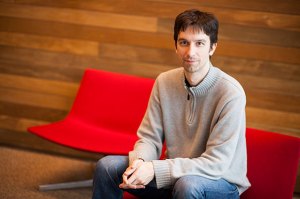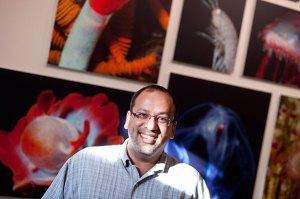Tag: Peter Reuell
-
Health
Reading shapes
A team of Harvard researchers has demonstrated that a shared developmental mechanism in songbirds is responsible for generating tremendous variability in their beaks, and is also a control on what kind variation can be produced.
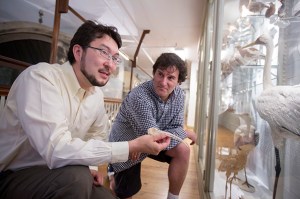
-
Campus & Community
Beyond the horizon
Harvard is immersed in understanding the world and improving it. Here’s how the University is making a difference now, and likely will do so in the next decade, in five key fields.
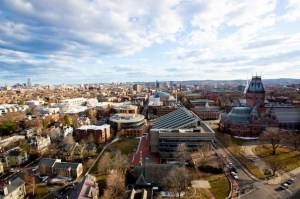
-
Health
Strategy for diabetes treatment
Harvard scientists have discovered a compound that inhibits insulin-degrading enzyme from breaking down insulin in the body.
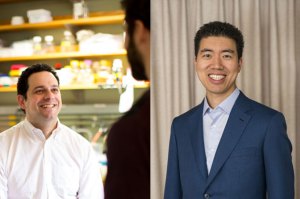
-
Health
Parental controls
It could be that the key to being a better parent is all in your head, Harvard researchers say.
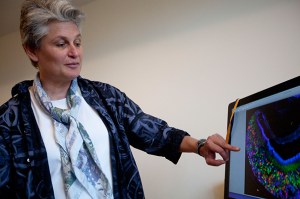
-
Science & Tech
Flipping the switch
Harvard researchers have succeeded in creating quantum switches that can be turned on and off using a single photon, an achievement that could pave the way for the creation of highly secure quantum networks.
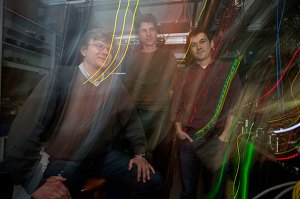
-
Science & Tech
Annals of climate
Professor Michael McCormick will lead a project aimed at constructing the most detailed historical record yet of European climate.
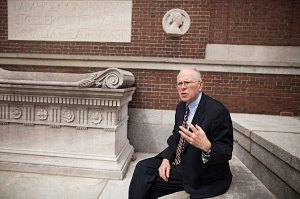
-
Campus & Community
Meaningful meal
Donors and students recently gathered for the Celebration of Scholarships dinner, an annual event that brings together students who benefit from financial aid with donors who support the program.
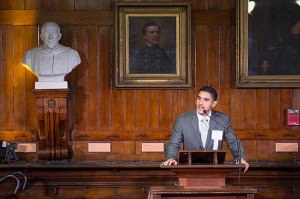
-
Science & Tech
MRI, on a molecular scale
A team of scientists led by Professor of Physics and of Applied Physics Amir Yacoby has developed a magnetic resonance imaging (MRI) system that can produce nanoscale images, and may one day allow researchers to peer into the atomic structure of individual molecules.
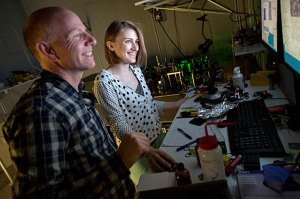
-
Campus & Community
A specialist in hows and whys
Matthew Rabin wants to know what makes you tick. One of the nation’s top scholars of behavioral economics, Rabin has been appointed to the first of three endowed professorships in…
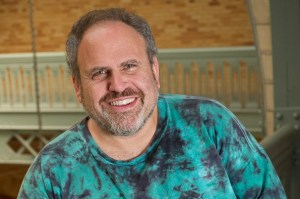
-
Health
Rules of evolution
For most people, rock-paper-scissors is a game used to settle disputes on the playground. For biologists, however, it is a powerful guide for understanding the key role mutation plays in…
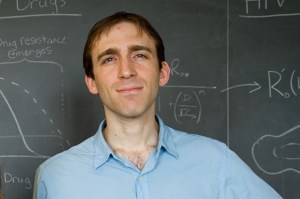
-
Health
A face is not a fish
A new study from Dartmouth and Harvard researchers looks at the mechanisms behind facial recognition.
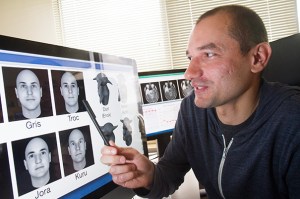
-
Campus & Community
Opening academia widely
In an effort to dispel the notion that graduate school and careers in academia are generally beyond the reach of minority students, Harvard hosted the second Ivy Plus Symposium.
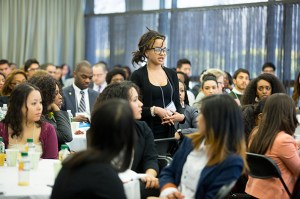
-
Health
Fair-minded birds
New research conducted at Harvard demonstrates sharing behavior in African grey parrots.
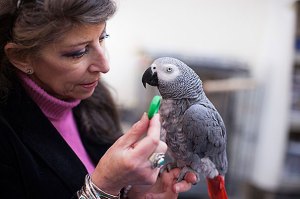
-
Health
Key connection
Scientists have long suggested that the best way to settle the debate about how phenotypic plasticity may be connected to evolution would be to identify a mechanism that controls both. Harvard researchers say they have discovered just such a mechanism in insulin signaling in fruit flies.
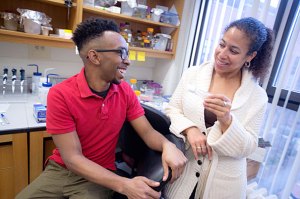
-
Science & Tech
Hierarchical differences
Female academics are less likely to collaborate across rank, a Harvard study found.
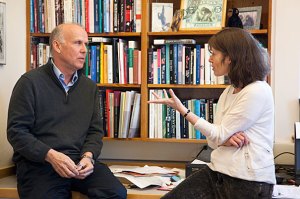
-
Science & Tech
Bringing order to the court
New Harvard research points to a sharper method for evaluating basketball players.
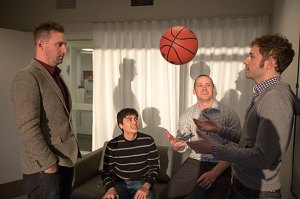
-
Science & Tech
Heads for steel
In the Instructional Physics/SEAS Instrument Lab, a machine shop tucked in the basement of Lyman Laboratory, students learn to use a range of equipment — everything from lathes to laser cutters to 3-D printers.
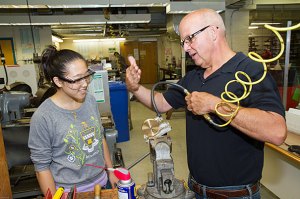
-
Science & Tech
Negative plus
Led by Professor David Liu, a team of researchers has developed a technique to continuously evolve biomolecules that uses negative selection — the ability to drive evolution away from certain traits — to create molecules with dramatically altered properties.
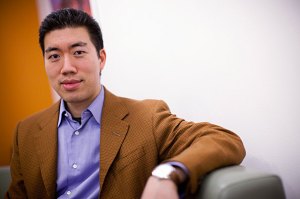
-
Science & Tech
Curves alter crystallization, study finds
A new study has uncovered a previously unseen phenomenon — that curved surfaces can dramatically alter the shape of crystals as they form.
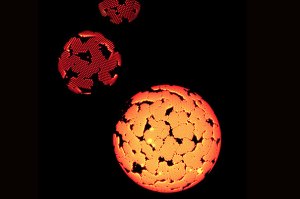
-
Science & Tech
Mars rover, slightly used, runs fine
Originally scheduled to operate on the Red Planet’s surface for 90 Martian days, the rover Opportunity has now logged more than 3,500 days, traveled nearly 39 kilometers, and collected a trove of data that scientists have used to study the planet’s early history, particularly any past traces of water.
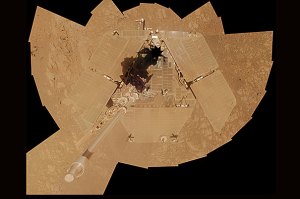
-
Health
Study ties fetal sex to milk production
A new study offers the first evidence that fetal sex can affect the amount of milk cows produce, a finding that could have major economic implications for dairy farmers.
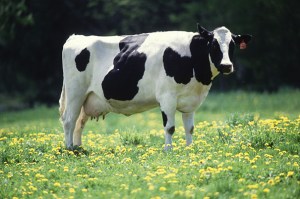
-
Health
‘On’ switches for cells
Scientists at Harvard have identified a previously unknown embryonic signal, dubbed Toddler, that instructs cells to move and reorganize themselves, through a process known as gastrulation, into three layers.
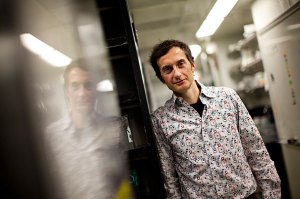
-
Campus & Community
A break to explore
January@GSAS offered more than 100 classes, seminars, and training sessions to students in Harvard’s Graduate School of Arts and Sciences during semester break. Students had the chance to escape the lab or library, and spend time exploring subjects that might not otherwise appear in a Harvard course catalog.
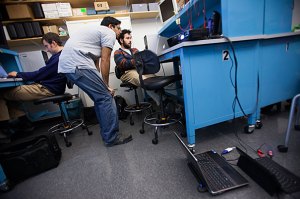
-
Health
Inconsistent? Good
Though variability is often portrayed as a flaw to be overcome, Harvard researchers now say that, in motor function, it is a key feature of the nervous system that helps promote better or more successful ways to perform a particular action.

-
Health
Something doesn’t smell right
Harvard scientists say they’re closer to unraveling one of the most basic questions in neuroscience — how the brain encodes likes and dislikes — with the discovery of the first receptors in any species evolved to detect cadaverine and putrescine, two of the chemical byproducts responsible for the distinctive — and to most creatures repulsive…
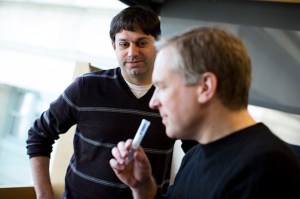
-
Health
Fin to limb
New research brings scientists closer to unraveling one of the longest-standing questions in evolutionary biology — whether limbs, particularly hind limbs, evolved before or after early vertebrates left the oceans for life on land.

-
Science & Tech
Rethinking the roots of altruism
In a new study, Harvard researchers find that inclusive fitness — for decades a standard tool in understanding how altruism evolved — often leads to incorrect conclusions.
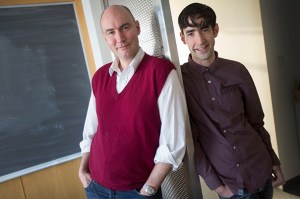
-
Science & Tech
Measuring electrons
In making the most precise measurements ever of the shape of electrons, Harvard and Yale scientists have raised serious doubts about several popular theories of what lies beyond the Higgs boson.
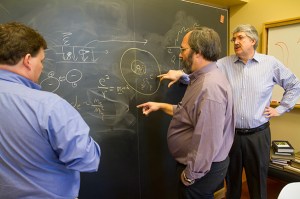
-
Health
Your gut’s what you eat, too
A new Harvard study shows that, in as little as a day, diet can alter the population of microbes in the gut – particularly those that tolerate bile – as well as the types of genes expressed by gut bacteria.
